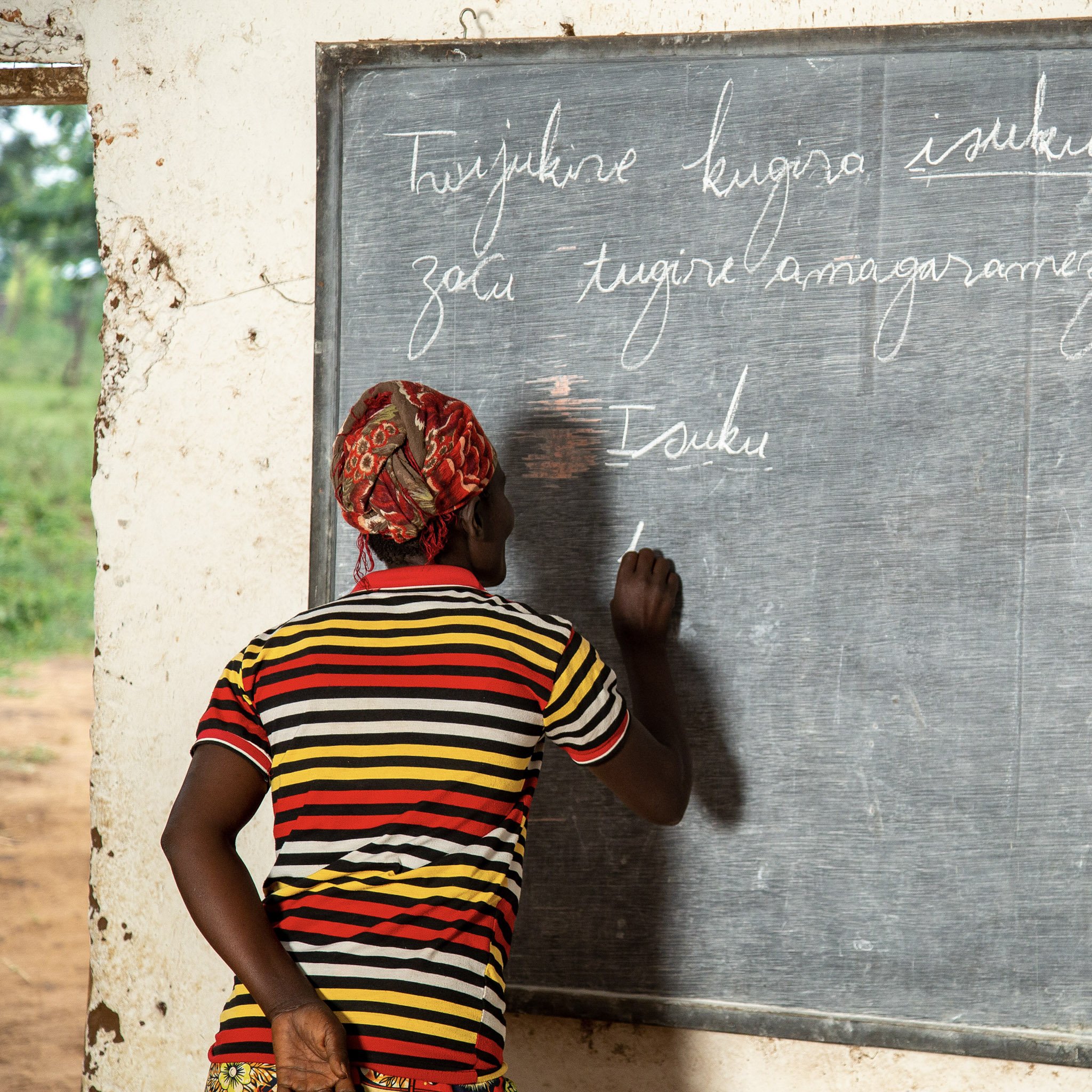This blog post was written by Megan Henderson, our Senior Communications & Events Officer.
Many of us take for granted all that reading, writing and counting enable us to do. For the communities our partners support, this is not the case. Paying school fees can be a significant challenge and many adult Savings Group members have been unable to complete formal education because their families had to prioritise using their incomes to meet family needs. For women too, cultures of early marriage excluded them from finishing their schooling.
Because of this, many of our partners start adult literacy & numeracy participatory training for Groups before saving and loaning begins. After participants complete the training and receive their certificates then Groups move on to save, loan, and invest together.
But what are the impacts of becoming literate and numerate?
Some are very practical: being able to read your child’s school report card; ensuring you give (and are given) correct change in the market; being able to administer the right amount of medication for yourself or a family member… the list goes on and on!
But more recently we heard from our partners in Kenya a huge benefit of the literacy training: being able to vote in the presidential election last month without assistance.
Our Programme Coordinator in Marsabit, Kenya, said, “We thank God for relatively peaceful day of election so far. Had just cast my votes and do hope our basic literacy graduates who were learning civic education will be able to exercise this very important right confidentially and successfully because of the literacy we offered.”
Before participating in the literacy & numeracy trainings, members could only cast their votes with assistance from someone else. Now that they are able to read and write for themselves they can cast their own ballot with confidence, and without informing anyone else of their choice.
The ability to write a simple tick mark in the appropriate place equips communities to be listened to in a way they were not heard before. We are incredibly grateful that, with your support, women and men in excluded communities can now use their voices and exercise their rights. .
“Those who knew me in the past came and asked me to tell them who I will vote for so that they could do it on my behalf. But because it was confidential, I kept quiet and walked straight to the vote place. They were amazed to see that I am now literate and can do it myself. I felt so proud of me! I am so grateful for this programme which enabled me to fulfil my civil rights.” - Group member in Burundi

